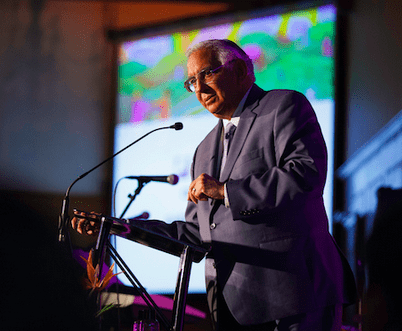One of the central themes in the Gospel of Luke is what interpreters have often called “the great reversal” — or perhaps in today’s more common language we should call it “the world upside down” (29).
 So Justo Gonzalez in The Story Luke Tells. One can express the depth of this truth from a variety of angles — Luke’s focus on the unlikely, Luke’s focus on social justice, Luke’s upside down kingdom vision, or Luke’s theme of reversal. Whatever one calls it, this is what shaped the kingdom vision of Jesus: it was for all in such a way that those in power experienced the downside of the unleashed kingdom.
So Justo Gonzalez in The Story Luke Tells. One can express the depth of this truth from a variety of angles — Luke’s focus on the unlikely, Luke’s focus on social justice, Luke’s upside down kingdom vision, or Luke’s theme of reversal. Whatever one calls it, this is what shaped the kingdom vision of Jesus: it was for all in such a way that those in power experienced the downside of the unleashed kingdom.
As Gonzalez points out, the Magnificat of Mary tells this story top to bottom, from the CEB of Luke 1:46-56 [if you scroll over Bible refs on this blog text will appear]:
Mary said, “With all my heart I glorify the Lord!
In the depths of who I am I rejoice in God my savior.
He has looked with favor on the low status of his servant.
Look! From now on, everyone will consider me highly favored because the mighty one has done great things for me. Holy is his name.
He shows mercy to everyone, from one generation to the next,who honors him as God.
He has shown strength with his arm.
He has scattered those with arrogant thoughts and proud inclinations.
He has pulled the powerful down from their thrones and lifted up the lowly.
He has filled the hungry with good things and sent the rich away empty-handed.
He has come to the aid of his servant Israel, remembering his mercy,just as he promised to our ancestors,
to Abraham and to Abraham’s descendants forever.”
The great reversal at work in Jesus’ kingdom vision then is both religious and social.
Religiously, Gonzalez states, Jesus enters into the synagogue at home (Luke 4:16-30), declares his kingdom vision by citing Isaiah and is repudiated — why? Because he omitted the vengeance against the Gentiles. This theme is known from other passages in Luke: Jesus embraces Gentiles in ways many of his contemporaries did and would not: Luke 6:17; 7:9 and then look at Luke 14:21. Luke 15’s “lost” parables say much the same. The kingdom underway opens to door into the synagogue for those who were formerly not welcome.
Socially the kingdom vision reverses in a radical way. Notice Luke 16:21, 24. Luke 4:18: good news to the poor. The Beatitudes of Luke (6:20-26) is far more focused on the social revolution underway for Israel. And again, Luke 14:25. Notice too how this flourishes in the early church in Luke’s second book, Acts 2:42-47.
Now notice how Luke’s vision expands to include those who weren’t included: Jerusalem and Judea, then Samaria and Galilee, then the Hellenistic Jews (Acts 6:1-6), God fearers in Acts (Acts 8; Acts 10-11). Finally pagans come to faith in Jesus. Jesus is from Galilee; on Samaritans, Luke 9:52-53 ….
Any church that is not shaped by this great reversal, any ministry that focuses on principles shaped by mono-ethnicities and mono-cultures is denying the kingdom vision of Jesus in the Gospel of Luke. What we see here is the world turned upside down by a radical vision that all people are invited to the table of Jesus.











